Blog - Blogue

-
Restoring Christian culture...a good idea?
Friday, August 01, 2014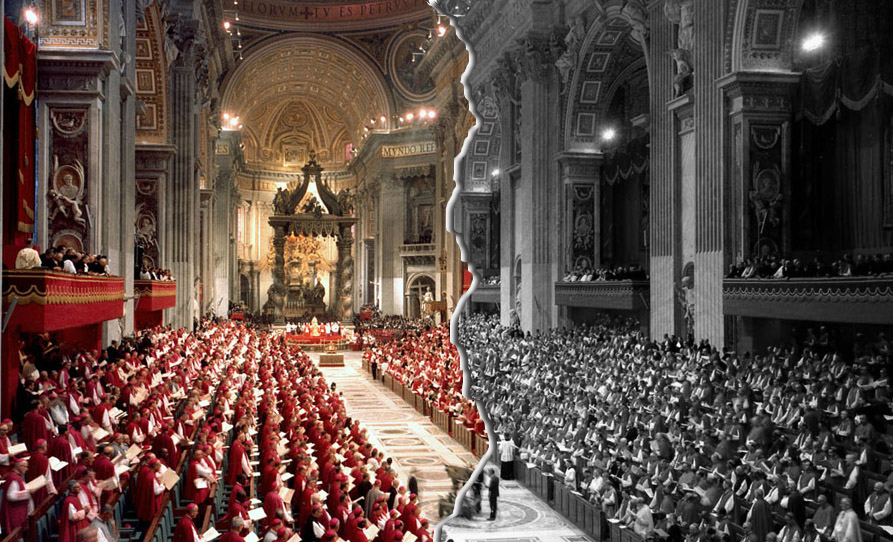
“Restoration” seems to be all the rage. “Conservative” Christian circles sigh and pray for restoration of ethics, of liturgy, of education, of common sense. In some “progressive” circles, we also hears sighs: "Lay people ought to engage like they used to, care like they did in the sixties after Vatican II" . . . bloggers on both sides are crying to bring back "the good ol' days".
But what does this idea of "restore", from the Latin restaurare, mean? Let's take a look at its etymology and different uses throughout the centuries so as to inspire our meditation.
Is Christian culture a reality that can be fixed? It would follow that it can be broken. Does not the idea of restoration imply that it would be a mechanism or a thing that could be understood – as one understands an engine – pulled apart and put back together?
I doubt it.
Is Christian culture something that could simply be repeated? At best, some elements may be reiterated, that is integrated in a new constellation.
Could a Christian culture be brought back to health? This would imply that cultures may be “sick” and corrupted. It suggests that remedies are at hand, that “doctors” are capable of a proper diagnostic, prognosis and cure.
These sort of questions help us become more prudent in our hopes for restoration…
To get to the crux of the matter we must ask: was there ever a (or many) specifically “Christian” culture(s)?
There have been cultures within which the Churches (catholic, protestant, orthodox), as institutions, had more influence, within which individual Christians made significant contributions and exerted power. But does this make these cultures “Christian”?
We should just pay attention to the numerous reformers, founders of religious congregations and to the reasons they invoked to see that they did not think that the culture was “Christian” – Francis and Dominic are a good example of this at the heart of the 13th century! Not only was the ambiant culture not “Christian” but in many cases they thought that the Church itself was in need of reform, in need of becoming evangelical, living the Word of God! And here, Saint Augustine’s City of God remains an important witness!
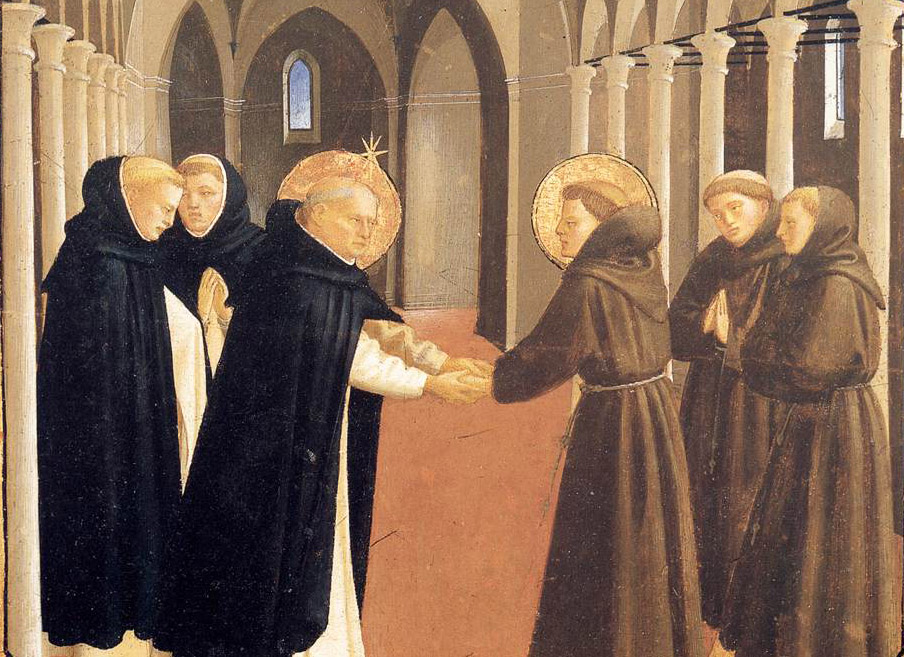
These two sets of questions help us pay attention not so much to the problems – logical, historical or sociological – about the expression “restoration of Christian culture” but to something else. Much more important according to me!
In fact, the discourses on “restoration of Christian culture” are nostalgic and programmatic. Nostalgic: they take place because individuals and groups are sad at what they believe is a state of affairs that ought not to be the case. Programmatic: they contain the hope that one can do something about it or at least that it would be a good thing to attempt this “restoration” or, minimally, to pray so that it takes place!
Both the nostalgia and the program stem from options rooted in discourses and practices that became prevalent, in some circles, in the 19th century. This was often linked to a very romantic view of the Middle Ages. In the 20th century, restoration of Christian ethics and culture became a central theme in Pius XIth’s Quadragesimo Adveniens! It was a rhetorical option to bring hope in a time of a major economic crisis (after the crash of 1929), of social unrest linked to capitalist individualism, communist politics and fascist restoration programs. In a way, the appearance of this leitmotiv could be seen as the symptom that part of society and of the Church is suffering and is grappling for hope.
The sadness and the hopes expressed in these discourses need to be heard. The people expressing them consoled! To use an expression in Paul’s Second Letter to the Corinthians, one needs to see what of that is a “sadness from God or according to God” and what is not (2 Co 7, 8-11).
In other words, what in this situation is an occasion for repentance and firm engagement in becoming more faithful to Christ and God’s Church?
And what of it is sadness stemming from a difficulty one feels and experiences in being Christian in the “real” world, which then amounts more to building a protective culture around oneself than about conversion?
What in these discourses is a source to refresh one’s desire to preach the Gospel and to be living witnesses of it?
What in them is a social and political program dreaming of a “Christian” Republic, never far from Plato’s fantasy? Augustine, Aquinas – attentive to Aristotle’s criticism of Plato’s tyrannical and anti-social, dehumanizing programs –, and the Council of Trent, long ago opted for a different evangelization strategy… and Vatican II followed in their footsteps!
In this case, should we not look more towards instaurations than to restorations? In Latin, instauro means to celebrate again, to enter into a process of building less a culture than the “body of Christ”, less a culture but more of vibrant and rejuvenated (also part of the meaning of instauro!) Christian communities.
Let Christians, as individuals supported by brothers and sisters, become “just” and work for the justice of the kingdom… all the while resting less on legal structures and socio-cultural institutions to supply for their inadequacies! Let the Kingdom of God come… not Christian cultures!
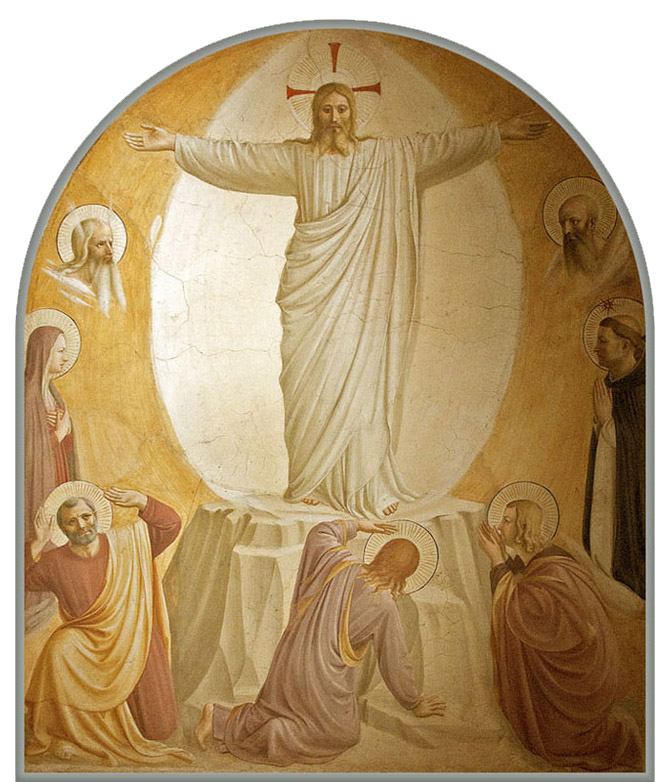
-
With age comes wisdom? Maybe...or maybe not.
Thursday, July 10, 2014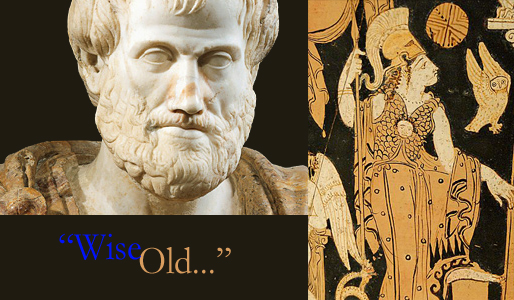
Bust of Aristotle and drawing of Athena, Greek goddess of wisdom
“Wise old…”–hum!!
One hears that wisdom comes with experience. Youth would not be a time for wisdom! That would be Greek wisdom… and its bourgeois avatar! At the other end of the spectrum, one also hears of the wise comments of the very young ones, of the ones that have remained “child-like”! These little ones would be like Jesus, the teenager, in the Temple (Luke 2, 46-47)! They have not been corrupted by life, disgruntled by sad and traumatic experiences. There is freshness! This would be a certain Christian wisdom… and its contemporary bourgeois avatars!
The “old” are not necessarily wise. One should meditate Aristotle’s description of their social emotions in his second book of the Rhetoric! The “young” are not necessarily wise either. Check out the same book of the Rhetoric! Aristotle was very realistic in his view of the strengths and weakness of character that one generally finds in youth and in seniors! Wisdom does not come with age nor is it something that pops up, intermittently, in little ingénues! Wisdom requires meditating on what one has felt, seen, learned. It requires a meditation that questions critically! And, however good and praised a reflexive-life might be (at least since Socrates’ time), on the whole, one is quite content to live on without the exhausting thought process. Precipitation, inconsistency and neglect are quite common vices[1]… in all periods and walks of human life.
In Sophocles’ tragedy, Creon, old, controlling, power-hungry, disillusioned, has no more wisdom than young, utopian, vibrant, righteous Antigone, whichever interpretation you choose to give to their encounter, confrontation, collision, fatal dialogue.[2] But there lies a road for us to explore.
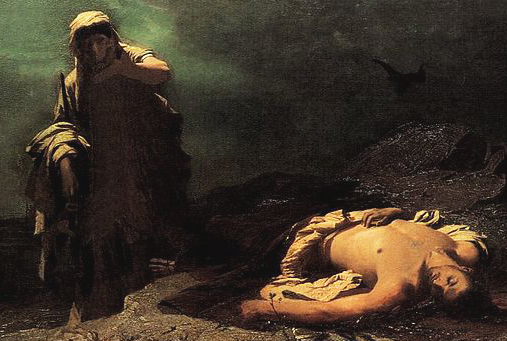
Antigone stands before Polynices
Wisdom is a question of disposition. But, let’s not give in to romantic images of dialogue. Wisdom comes from agonic debates where the protagonists dare listen to both Creons and Antigones of this world! Life and death situations might be at stake… and their impact on family, social and political aspects of the human experience. In that sense, one does not become wise alone. Inscription in a community of debates between men and women is required. Confrontations of old and young people are not to be avoided. Tough–often unsatisfactory and unfair–struggles and decisions are unavoidable between the rich and the poor. Why? Because wisdom is not primordially the accumulation of truths, of universal principles and of exemplary stories or fables. In that sense, wisdom is not the fruit of speculative reason’s feats or of history’s meditated “lessons”. Wisdom is, foremost, a breath of vision that aims at orchestrating concrete and diverse possibilities in a torn world. It is doing this without being limited to the “application” of one set of immutable principles. In music, one may choose to orchestrate like Bach, Mozart, Wagner, Strauss or like Schönberg, Webern or Boulez! The wise one will be able to figure out which orchestration is appropriate when and for whom and to what end!
Some get to this point quickly. Some painstakingly make it. Some never get it! Engaging oneself in philosophy or theology – amongst other university disciplines and experiences – may help one on the way!
[1] Thomas Aquinas, Summa theologiae, IIaIIae, q. 53 and 54.
[2] Sophocles, Antigone and G. Steiner, Antigones: How the Antigone Legend has Endured in Western Literature, Art, and Thought, Oxford, 1986.
